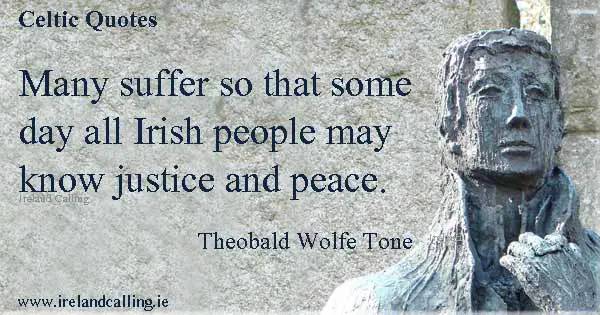The 1798 Rebellion was a series of battles that took place across Ireland. The United Irishmen were fighting for an independent republic, and the British Army were there to quash the rebellion and enforce British rule.
United Irishmen
The United Irishmen was an organisation of nationalists who wanted an independent Irish republic. It had begun as a political movement to unite Catholics and Protestants in Ireland. However, its open support of the French in its war against Britain invited hostility from the government and the movement became a secret operation.
The United Irishmen rose up against the British to fight for independence. They had supporters in France, and all across Ireland, but didn’t have an efficient command or communication structure.

Theobald Wolfe Tone
Theobald Wolfe Tone was the most prominent member of the United Irishmen. He was a politician and was one of the founders of the United Irishmen. Wolfe Tone travelled to France to try and gain military support for the rebellion. Much of the rebellion took place while Wolfe Tone was away. When he did return to Ireland, with a ship of French soldiers, they were intercepted by the British and he was arrested. He was due to be hanged but attempted suicide and died of his injuries before his execution could take place.
Father John Murphy
Father John Murphy was the reluctant leader of the Wexford rebels. He had actually urged his parishioners not to fight, but an incident of unnecessary and cruel violence by the British Army on his village changed his mind. Father Murphy led the Wexford rebels to several morale-boosting triumphs before his troops were eventually overpowered and he was captured and executed.
Henry Joy McCracken
Henry Joy McCracken was a leading figure in the United Irishmen. He was based in the north and was angry at his fellow leaders for not supporting the Wexford rebels with risings of their own. McCracken eventually took control of the northern rebels and led them into several battles. He was arrested by chance after being recognised, and was executed after he refused to give up information about his fellow United Irishmen.
Orange Order
The Orange Order was an organisation of Protestant British loyalists in Northern Ireland. They were strongly opposed to the United Irishmen, who they viewed as their Catholic enemies. The Orange Order formed their own paramilitary unit in order to protect their interests and deter the United Irishmen from rising up in the north. The British government saw the Orange Order as a key asset throughout the rebellion.
General Gerard Lake
General Gerard Lake was the commanding officer of the British Army throughout the rebellion. He was an experienced soldier and would try to end conflicts by persuading the rebels to peacefully surrender. However, when they didn’t, Lake was more than willing to use the full force of his army and violently eliminate the enemy. Lake led the British Army at the Battle of Vinegar Hill, which was one of the major British victories of the rebellion.
1798-rebellion.html”]